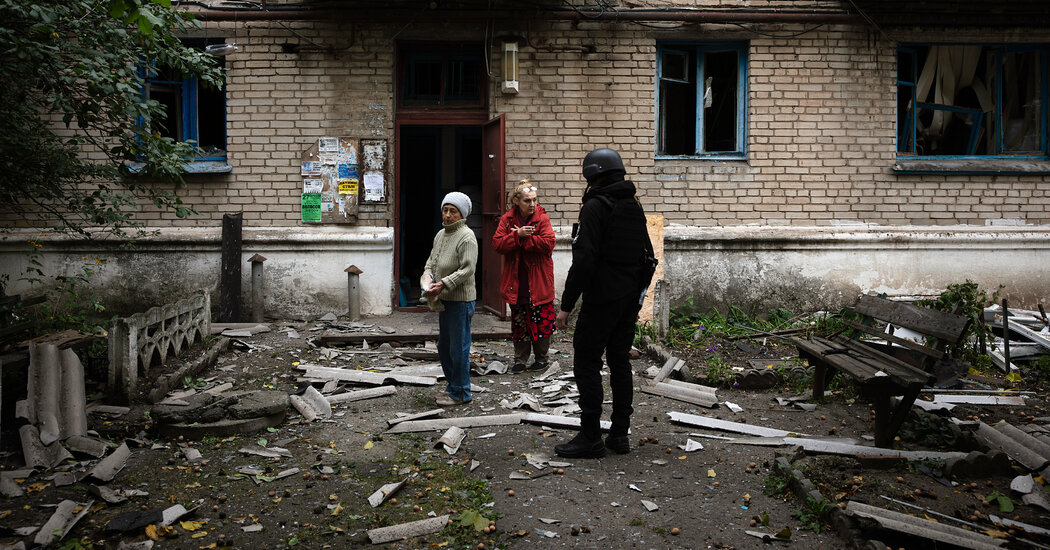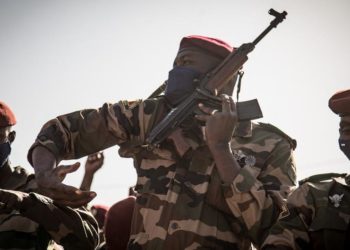Europe is mustering another show of support for Ukraine as Britain convenes a meeting of the “coalition of the willing” on Friday to discuss a boycott of Russian oil and gas, a loan to Ukraine using Russian sovereign assets, and accelerated weapon shipments to reinforce Kyiv’s military campaign against Russia.
President Volodymyr Zelensky of Ukraine and the leaders of Denmark, the Netherlands and NATO arrived in London for the meeting, which is being led by Britain’s prime minister, Keir Starmer. Twenty other leaders are joining the session by videoconference, according to 10 Downing Street.
For the moment, Europe has the wind at its back. President Trump’s decision to impose sanctions on Russia’s two largest oil companies, Rosneft and Lukoil, was followed by the European Union’s own latest round of sanctions. The European Union also pledged to continue funding Ukraine’s financial and military needs, while Britain announced that it would speed the delivery of an extra 100 air-defense missiles.
“From the battlefield to the global markets, as Putin continues to commit atrocities in Ukraine, we must ratchet up the pressure on Russia and build on President Trump’s decisive action,” Mr. Starmer said in a statement before the meeting. He and Mr. Zelensky are expected to speak to reporters on Friday afternoon.
“After all, Ukraine’s security matters to us all, and what happens on the front line of Donetsk today is shaping our collective future for years to come,” Mr. Starmer declared in his statement, referring to a region of eastern Ukraine that is the primary focus of Russia’s territorial ambitions.
The British hosts are framing this meeting as an effort to fortify Ukraine for the winter fighting months. Under a deal worth 1.6 billion pounds ($2.13 billion) announced in March, Britain agreed to supply more than 5,000 lightweight missiles to defend Ukraine from Russian attacks. Production has ramped up faster than expected, Downing Street said, putting it in a position to deliver an additional 140 missiles in time for Ukraine to use them during winter.
Britain and France jointly lead the so-called coalition of the willing, which Mr. Starmer and President Emmanuel Macron started in March. Its prospects have waxed and waned, in part because of Mr. Trump’s erratic views — he pivots between pressuring Mr. Zelensky and criticizing President Vladimir V. Putin of Russia — and in part because of Europe’s own fitful struggle for unity.
While the European Union followed the Trump administration in imposing energy sanctions on Russia, European leaders were unable to agree this week on a plan to use frozen Russian assets to finance a huge loan to Ukraine. Belgium, which holds the bulk of the assets, voiced concerns about legal liability.
Mr. Starmer said he planned to pressure his fellow leaders to move ahead with the loan plan, though Britain, having left the European Union in 2020, no longer exerts much influence on negotiations in Brussels.
Before joining Mr. Starmer at the British Foreign Office, Mr. Zelensky met with King Charles III at Windsor Castle, west of London. The king has met the president three times this year in what is viewed as a symbolic show of British solidarity.
Mark Landler is the London bureau chief of The Times, covering the United Kingdom, as well as American foreign policy in Europe, Asia and the Middle East. He has been a journalist for more than three decades.
The post Ukraine’s ‘Coalition of the Willing’ Has the Wind at Its Back appeared first on New York Times.




